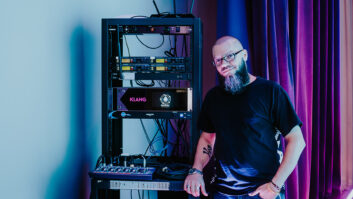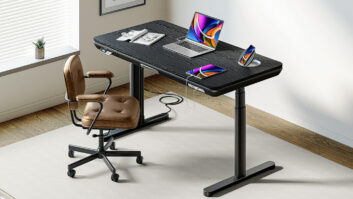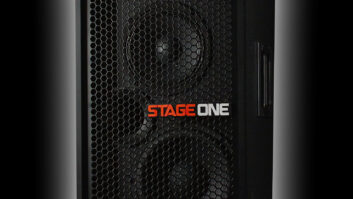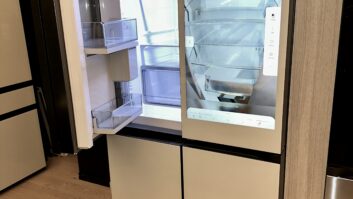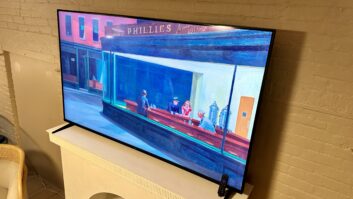At least two new audio brands, Diva and Outlaw Audio, and longtime brand PS Audio see e-commerce as their only commerce. And another start-up, Perpetual Technologies, sees most of its volume coming from e-commerce.
Diva, Outlaw and PS have developed private-label “e-branded” products intended exclusively for online sales to consumers, eliminating the cost of retail distribution to bring down the cost to consumers by as much as half. “Private e-branding will be a big thing in coming years because the economics of it are so secure,” claimed Tom Young, part-owner and president of Durham, N.H.-based Outlaw, which has begun selling its first product, a five-channel amplifier, through its outlawaudio.com web site.
The companies also contend the web is a way for small suppliers to break into a market where too many brands are chasing too few retailers.
The Diva, PS and Perpetual brands are available through the av123.com web site, whose principals are Perpetual president Mark Schifter, PS Audio owner Paul McGowan, and former retailers Walter Liederman and Ceto Sandoval.
av123.com will offer a quartet of Diva-brand speakers made exclusively for the site by Canadian supplier Swans Audio. It will also feature PS Audio products designed by former Genesis executive Paul McGowan, who recently repurchased rights to the PS name. And the site will feature a Perpetual-branded digital signal processor developed by Schifter, who also plans Perpetual sales through a small number of dealers.
The first Outlaw product is a 5 x 165-watt $1,099 amplifier built in “one of the best amplifier manufacturing facilities in the United States,” company literature claimed. The brand’s second product, a surround-sound preamp/tuner, will be available in a few months. The product engineers are also among Outlaw’s investors. Outlaw then finds a factory to build the product.
“Using the Internet to offer consumers our own branded product,” Young said, “results in A/V components that are priced approximately 40% less than comparable products with no sacrifice in features or performance.” Outlaw’s first amp would sell for $1,700 to $2,000 if offered through retail stores or catalogs, he said.
As for skeptics who contend that consumers have to hear audio products or view video products before they buy them, Outlaw’s Young said he isn’t worried that the lack of demo capability will hinder sales – or lead to high return rates.
Young cut his e-commerce teeth four-and-a-half years ago by launching Cinema Source, a mail-order catalog of branded home theater electronics. Young admitted he was worried that consumers wouldn’t buy big-ticket home theater products via a mail-order catalog, and if they did, he feared high return rates. But the twin fears didn’t materialize, and he began selling the products on the hometheaternet.com web site.
“We have very few returns,” Young said. “There are certain customers who want to listen before they buy. They have golden ears. But there are other people who are less fussy and will buy something that has a good review.” Hometheaternet.com reprints a handful of reviews but also links users to other sites that publish reviews, he noted.
The skeptics also haven’t persuaded av123.com’s Liederman. “If you have truly unique products and provide excellent value, people will try the product and like it,” he said. The value derives in large part from web economics. One of PS Audio’s first Power Plant AC Power Synthesizers, the $995 Power Plant P300, would cost almost twice that if sold at retail, he said.
PS’s first web exclusives consist of four AC Power Synthesizers, but amplifiers and processors are also under development. The synthesizers convert noisy, fluctuating household AC power to DC, then reconvert it to non-fluctuating 60Hz 120-volt AC to eliminate almost all high-frequency noise.
av123.com’s Diva speakers consist of two bookshelf models and two floor-standing models due in July at $299, $399, $699 and $899 per pair. Surrounds and a center channel are due about 60 days later, with powered subs also a possibility.
For its book-size P-1A digital processor, Perpetual plans a mix of web and dealer sales. The company is targeting about 40 to 60 dealers.
In its base form, the device performs 96kHz/24-bit digital audio processing to improve the sound quality of CD players. But Perpetual will also ship models designed to be used with specific speaker models to digitally correct for the speakers’ crossover-induced phase errors, cabinet resonances, and time-alignment errors.
The device is due in August. The base version with 96kHz/24-bit digital processing will retail for $950, but for another $399, models will be shipped with Eprom-embedded correction coefficients for a pair of specific speaker models.
About 40 speaker companies have agreed so far to provide their speaker’s response measurements to Perpetual, and Perpetual could itself measure the response of particular models to calculate the correction coefficients, Schifter said. Speaker suppliers who supply their speakers’ measurements, however, will get $100 for each of their users who buy the coefficients.
If coefficients for a particular speaker pair aren’t in Perpetual’s database, the company will take measurements and ship a replacement Eprom that consumers can insert themselves, Schifter said.
For another $699, Perpetual will deliver two-channel room-correction data online within two hours after a dealer or consumer uses a supplied room-correction kit – featuring a microphone, test CD, and PC software – to take a room-response test and upload the results to Perpetual. The correction data would be downloaded into the P-1A via a laptop. Future versions will support multichannel room correction.
Although the P-1A will be marketed through dealers at the same price as the online price, Perpetual expects dealers only to stock one demonstration model, with perhaps one backup, because the products are shipped from the factory with embedded speaker-correction coefficients for a particular speaker.





